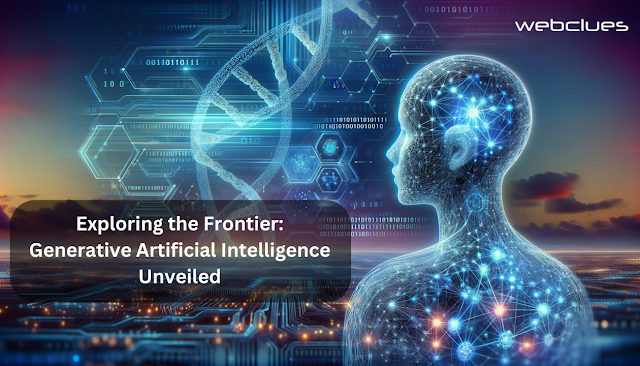At its core, generative AI harnesses the power of deep learning algorithms to create original content, ranging from text and images to music and beyond. Unlike traditional AI systems that rely on predefined rules and datasets, generative models have the remarkable ability to synthesize new information based on patterns and trends observed in the data they are trained on. This capacity for creativity has sparked a wave of excitement and exploration within the AI community, as researchers and practitioners seek to unlock the full potential of generative systems.
One of the most notable advancements in generative AI is the development of generative adversarial networks (GANs), a framework introduced by Ian Goodfellow and his colleagues in 2014. GANs consist of two neural networks – a generator and a discriminator – locked in constant competition. The generator strives to produce realistic output, while the discriminator learns to differentiate between authentic and generated data. Through this adversarial process, GANs can produce remarkably convincing results, from lifelike images to coherent text passages.
The applications of generative AI are as diverse as they are profound. In the realm of visual arts, generative models have enabled the creation of stunning images, animations, and even entire virtual worlds. Artists and designers are leveraging these tools to explore new aesthetic frontiers, blending human creativity with machine intelligence to produce captivating works of art. Similarly, in fields such as architecture and fashion design, generative AI is revolutionizing the creative process, offering novel insights and inspiration to designers and innovators.
Beyond the realm of art and design, generative artificial intelligence holds tremendous potential for transformative change in fields such as healthcare, finance, and education. In healthcare, for example, researchers are using generative models to generate synthetic medical images for training diagnostic algorithms, thereby augmenting limited datasets and improving the accuracy of medical diagnoses. In finance, generative AI is being employed to analyze market trends and generate predictive models for investment strategies, offering investors new tools for decision-making in an increasingly complex landscape. And in education, generative systems are being used to develop personalized learning experiences tailored to individual students, adapting content and instruction in real time to optimize learning outcomes.
However, with great power comes great responsibility, and the rise of generative AI also raises important ethical and societal considerations. As these systems become increasingly adept at mimicking human creativity, questions arise about the ownership and authenticity of generated content. Who owns the rights to a piece of music composed by a generative AI system? How do we ensure that generated content aligns with ethical standards and societal values? These are complex questions that demand careful consideration and thoughtful regulation as generative AI continues to evolve.
In conclusion, the exploration of generative artificial intelligence represents a journey into uncharted territory, where machines are not mere tools but collaborators in the creative process. From art and design to healthcare and finance, the applications of generative AI are vast and varied, promising to reshape industries and redefine human-machine collaboration in the years to come. Yet, as we navigate this frontier, we must remain vigilant in addressing the ethical and societal implications of generative AI, ensuring that these powerful tools are wielded responsibly for the benefit of all. So get ready to dive into the AI revolution with Webclues Infotech, your true partner in navigating the transformative landscape of generative artificial intelligence. Whether you’re looking to revolutionize your creative process, enhance your business operations, or simply explore the potential of AI, our team of experts is here to guide you every step of the way. Connect with us today to unlock the power of AI and turn your visionary ideas into reality.


0 Comments